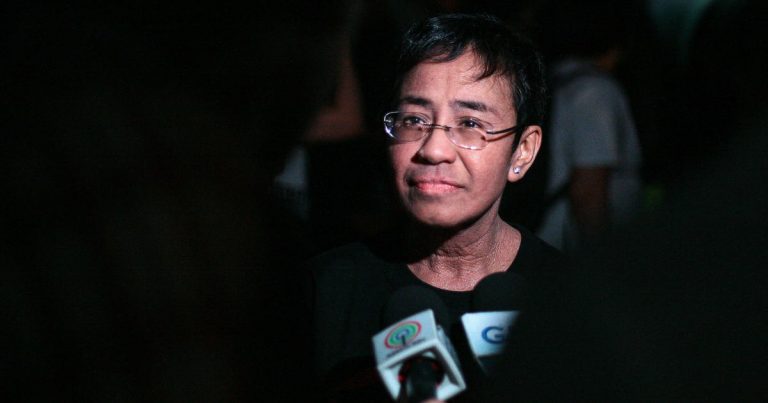
The European Parliament passed a resolution calling on the Philippines government to drop charges against acclaimed journalist Maria Ressa during a session on Thursday. Ressa, the founder and CEO of the online news service Rappler, and Reynaldo Santos Jr., a former Rappler staffer, were found guilty of “cyber libel” by a Manila trial court in June.
Parliament members overwhelmingly approved a broad measure that addresses the rise in human rights violations since Philippines President Rodrigo Duterte took office in 2016. The resolution calls out the extrajudicial killings of thousands of Filipinos as part of Duterte’s anti-drug campaign, as well as violence against women and retaliation against journalists, including Ressa.
The European Union’s law-making body urged the Philippines to drop all charges against Ressa and Santos, who have appealed their convictions and posted bail.
Ressa founded the online news site Rappler in 2012 and has received international acclaim for her reporting in the face of personal and legal threats. Rappler as a company was found to not be liable in the case.
She and human rights groups believe the government of Duterte has targeted Rappler and Ressa in response for its critical reporting, including its coverage of Duterte’s deadly “war on drugs.”
During Thursday’s session, European Parliament member Hannah Neumann of Germany brought up Ressa’s plight and said she wants to revoke privileges the Philippines has under the EU’s Generalised Scheme of Preferences (GSP+) trade arrangement, which allows developing countries to pay less or no duties on their exports to the EU.
She directed her ire at Duterte, who despite being accused of human rights violations, “still enjoys trade privileges of the EU under the GSP+ scheme that are supposedly linked to improvements in human rights, but the situation is just getting worse.”
“We don’t have that many tools as the European Union to protect human rights and democracy, and maybe our trade policy is the strongest one,” she said.
The resolution reminds the Philippines about its human rights obligations under international law, and sais that “in the absence of any substantive improvements” the removal of GSP+ trade preferences “should be considered.”
The Philippines ranks 136th out of 180 countries on the World Press Freedom Index put together by Reporters Without Borders, whose analysts say journalists there face threats of violence, legal charges, and online harassment.
In May, the country’s biggest broadcaster, ABS-CBN, was forced off the air. The European Parliament’s resolution on Thursday also calls on the Philippines to renew the network’s broadcasting license.
–Haley Ott and Barnaby Lo contributed to this report.